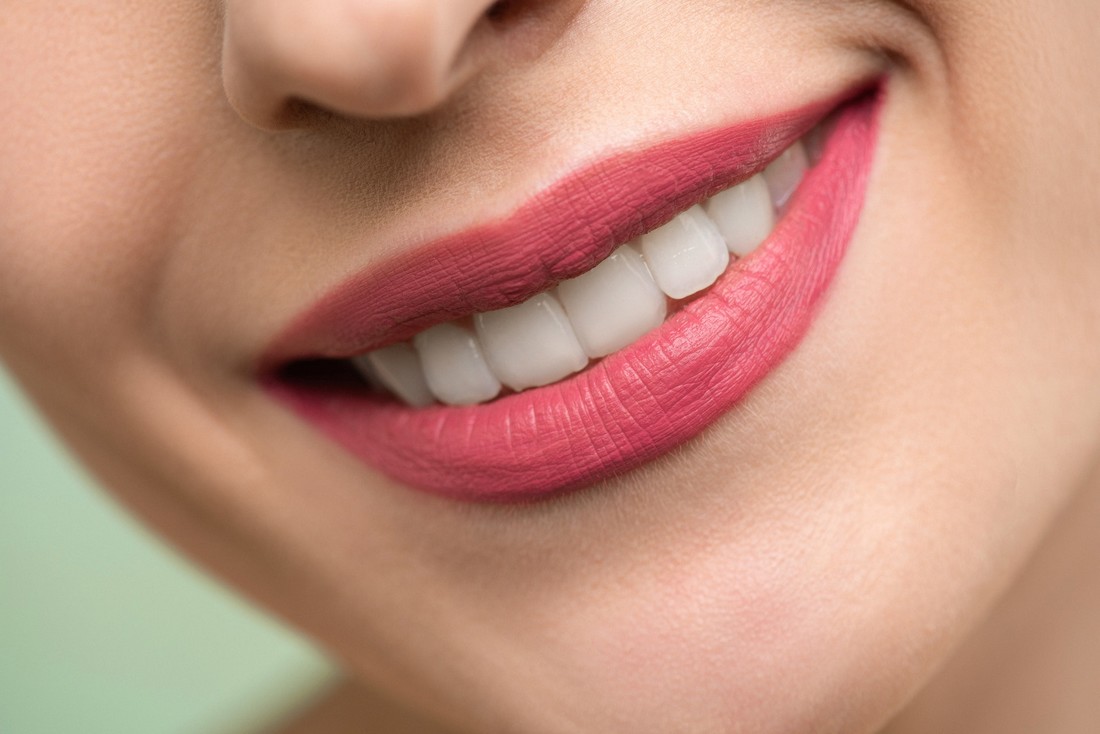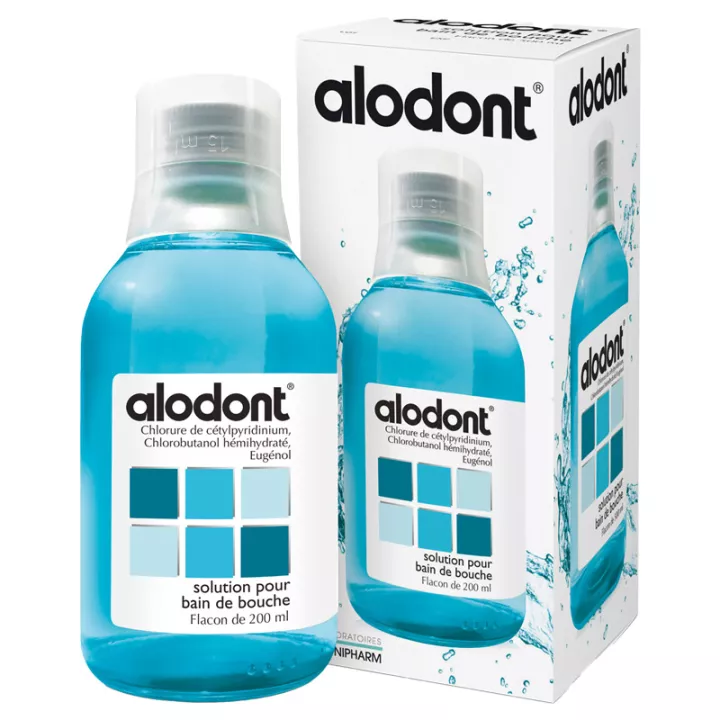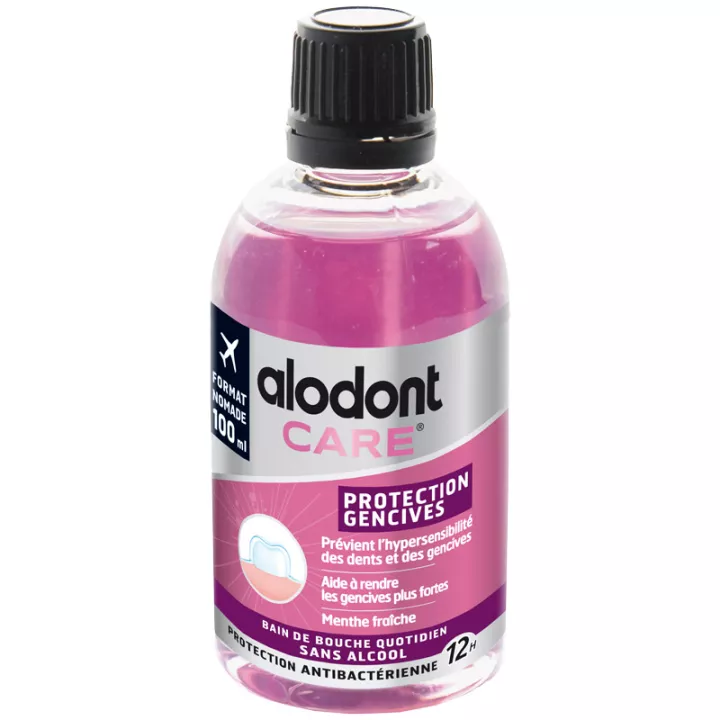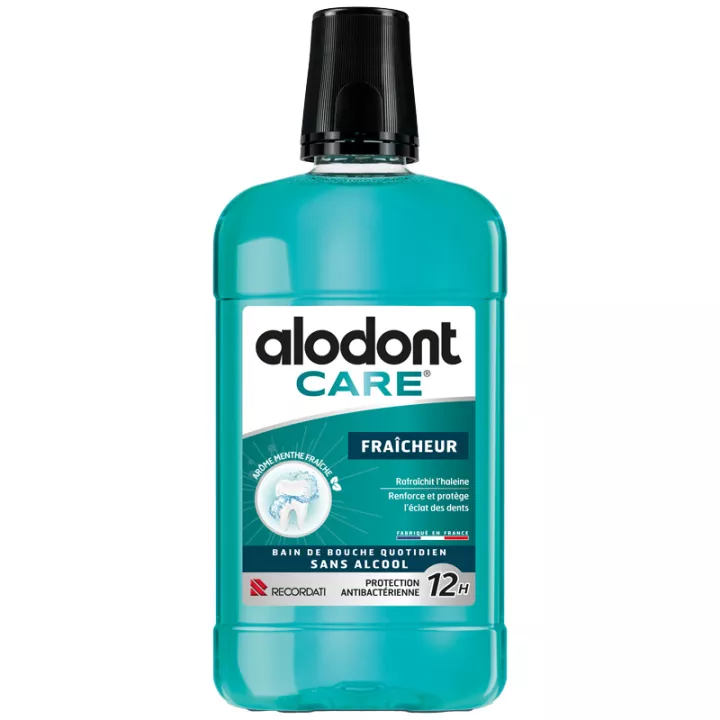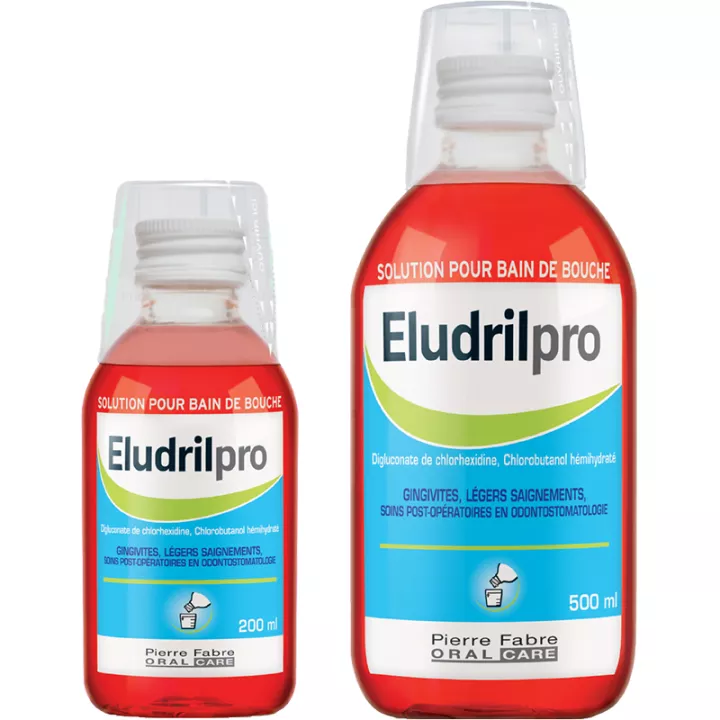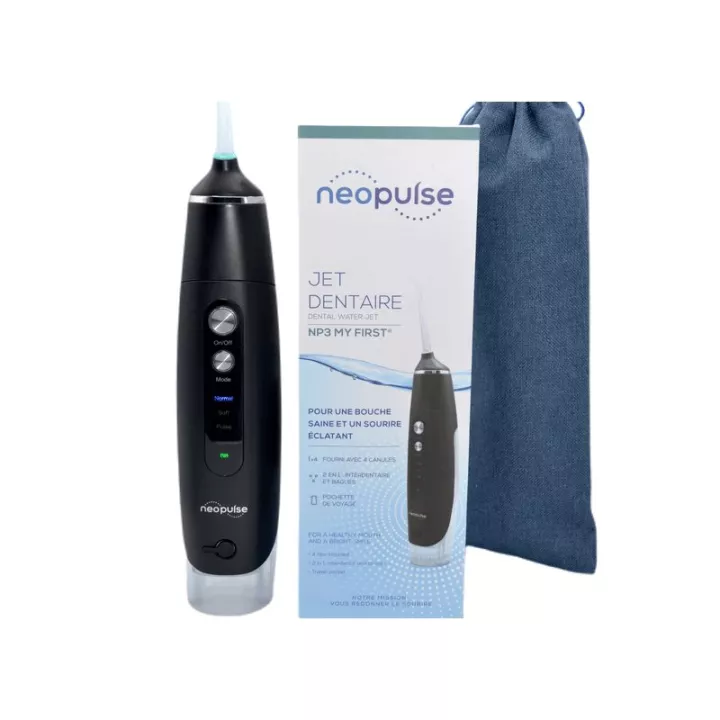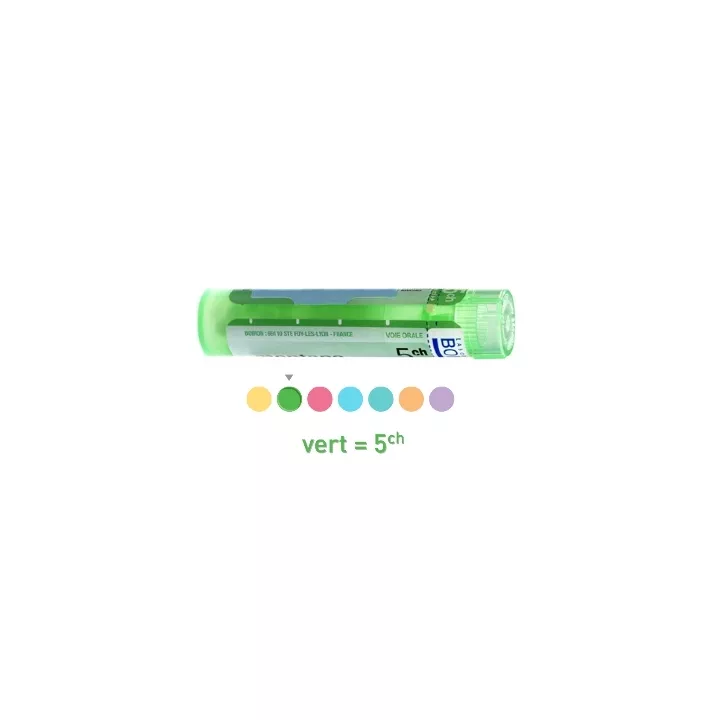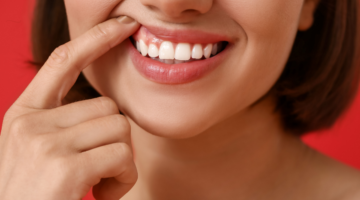NOTICE
ANSM - Mis à jour le : 06/02/2025
Dénomination du médicament
ALODONT, solution pour bain de bouche
Chlorure de cétylpyridinium/Chlorobutanol hémihydraté/Eugénol
Encadré
Veuillez lire attentivement cette notice avant dutiliser ce médicament car elle contient des informations importantes pour vous.
Vous devez toujours utiliser ce médicament en suivant scrupuleusement les informations fournies dans cette notice ou par votre pharmacien.
· Gardez cette notice. Vous pourriez avoir besoin de la relire.
· Adressez-vous à votre pharmacien pour tout conseil ou information.
· Si vous ressentez un quelconque effet indésirable, parlez-en à votre médecin ou votre pharmacien. Ceci sapplique aussi à tout effet indésirable qui ne serait pas mentionné dans cette notice. Voir rubrique 4.
· Vous devez vous adresser à votre médecin si vous ne ressentez aucune amélioration ou si vous vous sentez moins bien après 5 jours.
Que contient cette notice ?
1. Qu'est-ce que Alodont, solution pour bain de bouche et dans quels cas est-il utilisé ?
2. Quelles sont les informations à connaître avant d'utiliser Alodont, solution pour bain de bouche ?
3. Comment utiliser Alodont, solution pour bain de bouche ?
4. Quels sont les effets indésirables éventuels ?
5. Comment conserver Alodont, solution pour bain de bouche?
6. Contenu de lemballage et autres informations.
1. QUEST-CE QUE ALODONT, solution pour bain de bouche ET DANS QUELS CAS EST-IL UTILISE ?
Classe pharmacothérapeutique - code ATC : STOMATOLOGIE/TRAITEMENT LOCAL A VISEE ANTISEPTIQUE. (A: appareil digestif et métabolisme).
Ce médicament est un bain de bouche.
Il est préconisé dans le traitement local d'appoint des infections de la bouche ou en soins après une intervention chirurgicale de la cavité buccale.
2. QUELLES SONT LES INFORMATIONS A CONNAITRE AVANT DUTILISER ALODONT, solution pour bain de bouche ?
Nutilisez jamais Alodont, solution pour bain de bouche:
· si vous êtes allergique au chlorure de cétylpyridinium, au chlorobutanol hémihydraté, à leugénol ou à lun des autres composants contenus dans ce médicament, mentionnés dans la rubrique 6.
Avertissements et précautions
En cas de doute, adressez-vous à votre médecin ou à votre pharmacien avant dutiliser Alodont, solution pour bain de bouche.
Enfants
Ne pas utiliser chez lenfant de moins de 7 ans
Autres médicaments et ALODONT, solution pour bain de bouche
Informez votre médecin ou votre pharmacien si vous prenez, avez récemment pris ou pourriez prendre tout autre médicament.
ALODONT, solution pour bain de bouche avec des aliments, boissons et de lalcool
Sans objet.
Grossesse, allaitement et fertilité
Si vous êtes enceinte ou que vous allaitez, si vous pensez être enceinte ou planifiez une grossesse, demandez conseil à votre médecin ou pharmacien avant dutiliser ce médicament.
Conduite de véhicules et utilisation de machines
Sans objet.
ALODONT, solution pour bain de bouche contient de lhuile de ricin.
3. COMMENT UTILISER ALODONT, solution pour bain de bouche ?
Veillez à toujours utiliser ce médicament en suivant exactement les indications de votre médecin ou pharmacien. Vérifiez auprès de votre médecin ou pharmacien en cas de doute.
RESERVE A L'ADULTE ET A L'ENFANT DE PLUS DE 7 ANS.
Utilisation locale en bains de bouche.
Ne pas avaler.
La posologie recommandée est chez l'adulte de 3 bains de bouche par jour avec du produit pur, garder le produit une minute dans la bouche.
Veillez à toujours utiliser ce médicament en suivant exactement les indications de votre médecin ou pharmacien. Vérifiez auprès de votre médecin ou pharmacien en cas de doute.
Utilisation chez les enfants et les adolescents
Chez l'enfant de 7 à 12 ans: 3 bains de bouche par jour avec du produit dilué à 50 % avec de l'eau.
Durée du traitement
Le traitement ne devra pas dépasser 5 jours sans avis médical.
Si vous avez utilisé plus de ALODONT, solution pour bain de bouche que vous nauriez dû
Un surdosage n'est pas attendu dans les conditions normales d'utilisation. Certains constituants de ce médicament (huiles essentielles) peuvent entraîner à doses excessives, des accidents neurologiques à type de convulsions chez l'enfant.
En cas d'épilepsie ancienne ou récente, demandez l'avis de votre médecin.
Si vous oubliez dutiliser ALODONT, solution pour bain de bouche
Sans objet.
Si vous arrêtez dutiliser ALODONT, solution pour bain de bouche
Sans objet.
Si vous avez dautres questions sur lutilisation de ce médicament, demandez plus dinformations à votre médecin ou à votre pharmacien.
4. QUELS SONT LES EFFETS INDESIRABLES EVENTUELS ?
Comme tous les médicaments, ce médicament peut provoquer des effets indésirables, mais ils ne surviennent pas systématiquement chez tout le monde.
Comme tous les médicaments, ALODONT, solution pour bain de bouche est susceptible d'avoir des effets indésirables, bien que tout le monde n'y soit pas sujet: En raison de la présence de dérivés terpéniques et en cas de non-respect des doses préconisées:
· risque de convulsions chez le nourrisson et chez l'enfant,
· possibilité d'agitation et de confusion chez les sujets âgés.
Très rarement les effets indésirables suivants ont été rapportés: irritation de la bouche et réaction allergique systémique.
Déclaration des effets secondaires
Si vous ressentez un quelconque effet indésirable, parlez-en à votre médecin ou votre pharmacien. Ceci sapplique aussi à tout effet indésirable qui ne serait pas mentionné dans cette notice. Vous pouvez également déclarer les effets indésirables directement via le système national de déclaration : Agence nationale de sécurité du médicament et des produits de santé (ANSM) et réseau des Centres Régionaux de Pharmacovigilance - Site internet: www.signalement-sante.gouv.fr
En signalant les effets indésirables, vous contribuez à fournir davantage dinformations sur la sécurité du médicament.
5. COMMENT CONSERVER ALODONT, solution pour bain de bouche ?
Tenir ce médicament hors de la vue et de la portée des enfants.
Nutilisez pas ce médicament après la date de péremption indiquée sur lemballage et le flacon. La date de péremption fait référence au dernier jour de ce mois.
Ne jetez aucun médicament au tout-à-légout ou avec les ordures ménagères. Demandez à votre pharmacien déliminer les médicaments que vous nutilisez plus. Ces mesures contribueront à protéger lenvironnement.
6. CONTENU DE LEMBALLAGE ET AUTRES INFORMATIONS
Ce que contient ALODONT, solution pour bain de bouche
· Les substances actives est sont :
Chlorure de cétylpyridinium......................................................................................... 5,0000 mg
Chlorobutanol hémihydraté....................................................................................... 50,0000 mg
Eugénol..................................................................................................................... 4,0000 mg
Pour 100 g de solution.
Titre alcoolique: 21 % v/v.
· Les autres composants sont :
Alcool, huile de ricin hydrogénée et polyoxyéthylénée 25, hydroxyde de sodium, acide citrique monohydraté, huile essentielle de menthe poivrée, saccharine sodique, bleu patenté V (E131), eau purifiée.
Quest-ce que ALODONT, solution pour bain de bouche et contenu de lemballage extérieur
Ce médicament se présente sous forme de solution pour bain de bouche. Boîte de un flacon de 30 ml, 200 ml ou 500 ml avec ou sans godet-doseur.
Titulaire de lautorisation de mise sur le marché
BOUCHARA-RECORDATI
TOUR HEKLA
52 AVENUE DU GENERAL DE GAULLE
92800 PUTEAUX
Exploitant de lautorisation de mise sur le marché
LABORATOIRES BOUCHARA-RECORDATI
TOUR HEKLA
52 AVENUE DU GENERAL DE GAULLE
92800 PUTEAUX
Fabricant
DELPHARM ORLEANS
5, AVENUE DE CONCYR
45071 ORLEANS CEDEX 2
Noms du médicament dans les Etats membres de l'Espace Economique Européen
Sans objet.
La dernière date à laquelle cette notice a été révisée est :
[à compléter ultérieurement par le titulaire]
< {MM/AAAA}>< {mois AAAA}.>
Autres
Sans objet.
